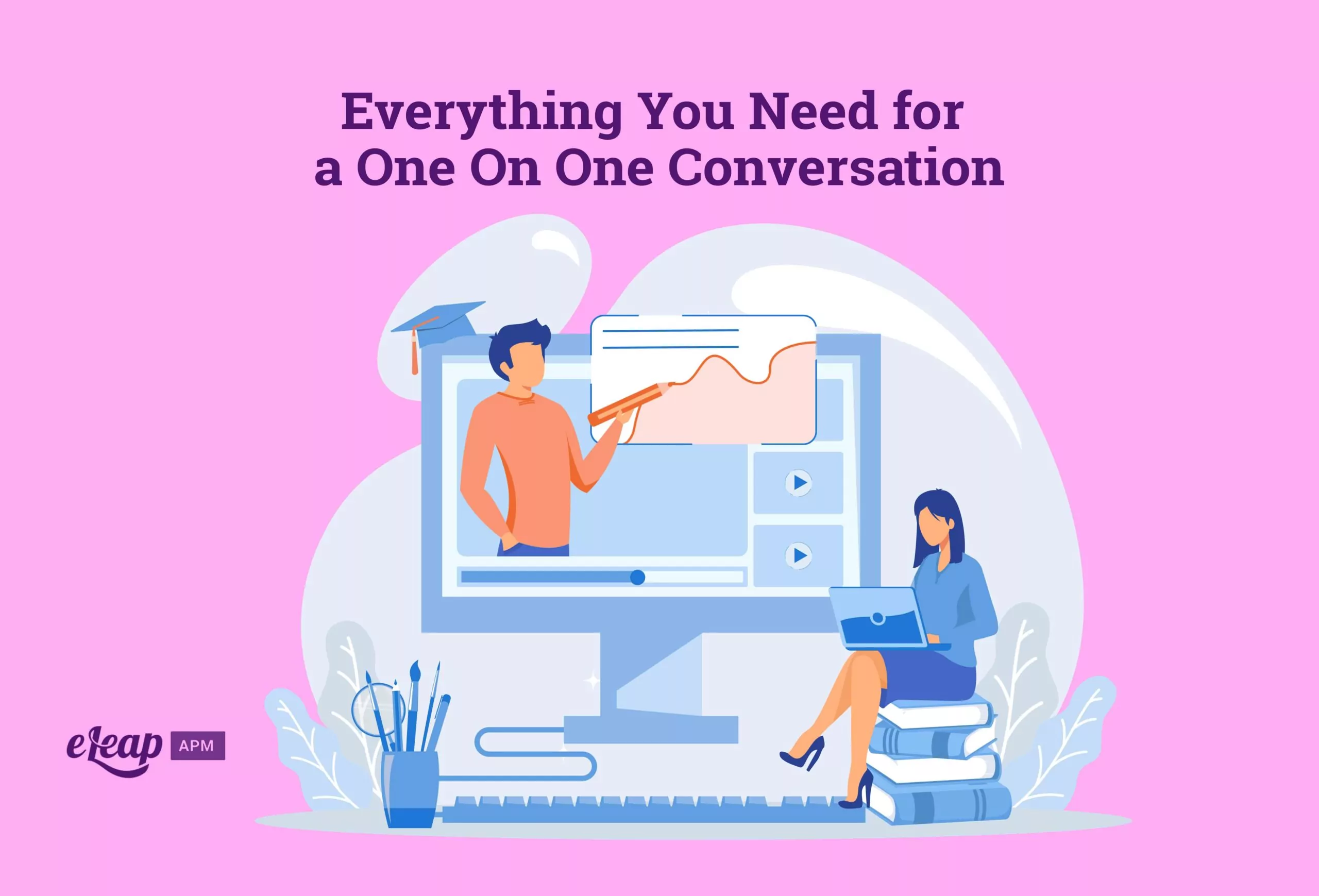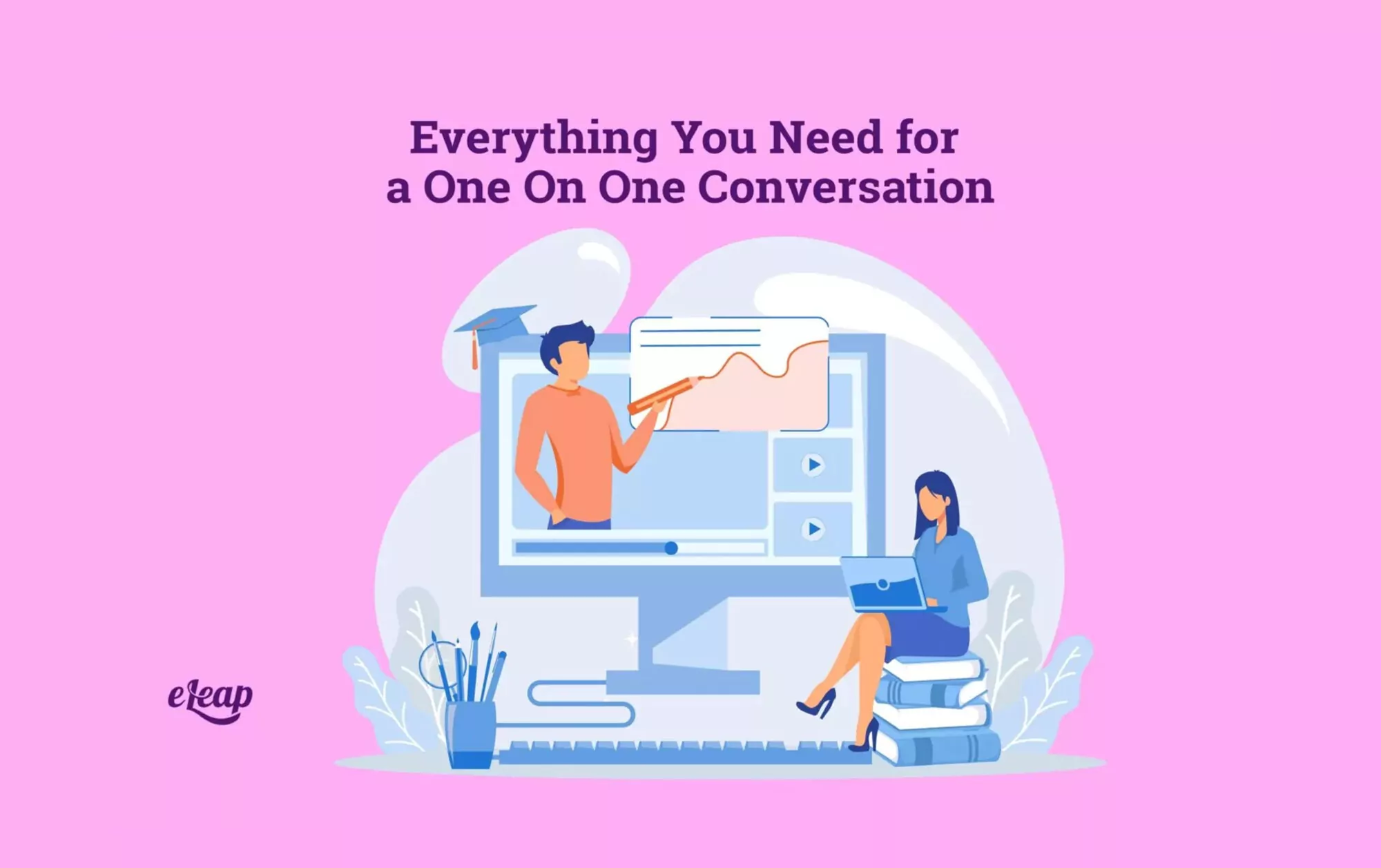Everything You Need for a One On One Conversation

Are you nervous about having a one-on-one conversation with someone at work? Maybe you need to start having regular meetings with each of your team members to ensure they’re performing as they should. It can be intimidating to take on this kind of meeting!
However, with the right tools and preparation, having a one-on-one conversation with your employees can be a beneficial use of time. They can help with productivity and the overall culture of your workplace!
Let’s look at how to prepare for and host a great one-on-one meeting!
Set Aside Time
The first thing you have to do for a proper one-on-one conversation is set the time aside for it. Most of these conversations don’t need to be incredibly long, which is part of why it’s easy to push them off and not schedule them.
Your best option is to send a calendar invite to your employee with a set time for your conversation. This will put the meeting on both of your calendars, allowing you to make sure you schedule nothing else at that time.
Depending on how often you have one-on-one conversations, you can even make them a recurring event on your calendar. With this approach, one-on-one meetings will become part of your routine before you know it!

Preparing for Your One-on-One Conversation
To have a great meeting with your employees, you need to take the time to prepare. This will allow you to approach the meeting professionally and with an open mind. Let’s look at some of the best ways to do this!
Remember, Your Employees Are Humans
This may sound silly, but it’s important. It can be easy to forget that your employees have lives outside of the workplace, but they do. They may have difficult situations going on, or they may be in a great place! Either way, don’t assume you know how the meeting will go.
Prepare to build a relationship with your employees in addition to helping them grow in their positions. If you have to have a difficult conversation, do it regardless of what’s going on in their personal lives. However, do so with tact and empathy to get the best response from them.
Have a Clear Idea of Expectations
To explain why your employee needs to improve in an area, you must explain the expectations of being an excellent employee.
It may be easy to do but refrain from using other employees as examples of what to do (or what not to do). Remove the “people” element from your expectations. Instead, focus on specific behaviors or approaches, allowing employees to excel!
Have an Agenda
The best way to ensure that your one-on-one conversation agenda is set up correctly is to check in with your employees a day or so before. Ask them what they would like to discuss or if they have areas they need extra guidance on.
With this information in mind, you can create an agenda that allows time for both what you want to discuss and what they want to do.
Make a Plan
Before you sit down with your employee, have some ideas of how you would like to see improvements. Consider what steps your employee can take to show that they’re taking the initiative to improve their performance.
However, remember that this plan shouldn’t be the only option. Having some ideas before the meeting is good, but allow your employees to sound off. You can present your plan and then see if they have any additions or changes they’d like to make. From there, you can make a plan that works for you and them!
Having a One-on-One Conversation
Now that you’ve prepared for your conversation, it’s time to have it. There are many great tips for having the perfect one-on-one meeting. However, we’ve got the best tips right here for you to follow!
Start off with Checking In
You won’t want to start right in on the meat of the meeting. Instead, begin by building some trust between you and your employee. Ask them how they’re feeling, and then tell them about your feelings.
When you’re honest, it will press them to be more honest with you as well. You need them to feel safe and ready to be vulnerable for the best meeting. This is a perfect chance for you to lead by example.
Ask for Updates
If you’ve had a previous meeting with this employee, ask them to update you on how they’ve done with the goals you came up with last time. They should have some kind of feedback or metrics they can reference to let you know how your current plan is going.
Check-In on a Personal Level
Keep it professional, but ask how your employee is doing outside work. When you ask them this kind of question, it shows your employees that you care about them as individuals. This can help you build trust. Not only that, but it can give you some insight into potential reasons for your employee’s struggles.
Talk About Challenges
Now’s the time to find out where your employee needs extra help or guidance. They may have given you this information when you reached out before. If so, you can ask any clarifying questions you have about what they mentioned.
When your employees tell you what they’re struggling with, don’t just give them a solution by telling them what to do. This can come across in a way that will shut your employee down. Instead, commit to coming up with a solution as a team by taking their opinions into consideration.
Keep Them Accountable
Once you’ve identified goals that your employees should pursue, it’s crucial to hold them accountable for them. Follow up regularly to see how things are going. When you have feedback on an area, give it quickly.
Don’t wait until the next performance review or one-on-one meeting to check-in. If the need arises, touch base with your employee between meetings so that you can get a true idea of how things are going.
Talk About Morale
Ask your employees to be honest about their morale at work. Find out how they feel about the overall work culture and ask them if they see areas for improvement. Having a healthy culture is key to high performance at work.
You can’t truly know how morale is at work unless you ask about it and get feedback. This feedback can give you a true look at potential gaps hurting your team’s culture.
Celebrate Wins
Don’t forget to talk about what’s been going well. Employees will likely have areas they need to improve, but they’ll also have successes. Make sure you’re looking back on recent successes your employee has had. Then, in the one-on-one conversation, mention them.
When you celebrate wins, make sure you highlight the impact it’s made on the team as a whole. This will help your employees see how valuable they are to the team!
Confirm Action Items
Ensure your employees leave the meeting with a clear idea of how to approach their work improvements. You should both have a clear expectation of the timeline and resources needed to meet the goals at hand.
Each employee will take different amounts of time to make different changes. Keep this in mind when setting action item expectations. You shouldn’t expect the same rate of improvement in everyone, so you shouldn’t set the same deadline expectations either. Be mindful of where your employees need extra help and how that can change their timeline.
Take Notes
Have some notes that you take over what your employee mentions during your conversation. These notes should be useful for looking back at how your employee has progressed. They can also help remind you of extra details you may have learned about them.
You can also give your employees some notes they can take with them about what you talked about. Giving them a written plan can help them look back on it after your conversation. When they have this to see, they’re more likely to keep up with their changes.
Follow Up
Of course, your one-on-one conversations will only meet their peak success when you follow up with your employees later. This shows your employees that you’re committed to their success. It also allows you to catch issues in your action plans before they get out of hand.
Takeaway
One-on-one conversations should become a regular part of your work culture. These meetings allow you to connect with each employee and give them coaching tailored to their strengths, weaknesses, and goals. With these tips, you’ll be ready for any one-on-one conversation that comes your way!